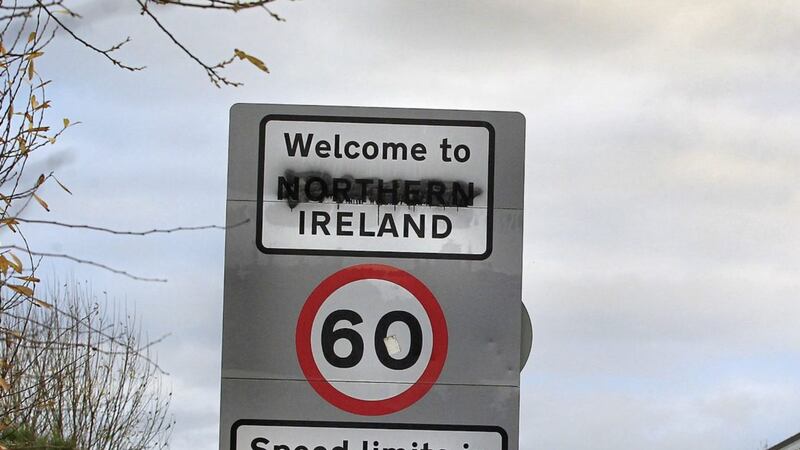THE rising costs of overheads is exercising cross border-traders more than the spectre of Brexit right now, a new business barometer claims.
The latest InterTradeIreland business monitor, which gauges the views of more than 750 business managers across Northern Ireland and the Republic, shows that trade has remained resilient over the past quarter, with 41 per cent of companies continuing to grow.
It found that almost half of all firms which trade either way across the border are growing, with 30 per cent experiencing a rapid growth in sales, compared to just 18 per cent that do not export.
But amid the positivity, Brexit still looms large with businesses, with respondents fearful of future skills shortages within their sector and exporters reporting a negative impact on sales.
The third quarter barometer points to 41 per cent of businesses continuing to grow, with cross-border trading increasing a business’s probability of growing rapidly by over 60 per cent.
Aidan Gough, InterTradeIreland’s designated officer and director of strategy and policy, said: “The figures have significantly better outcomes across a range of key indicators including turnover, employment and productivity.
"Goods firms exporting across the border have nine per cent higher levels of productivity than firms that don’t export beyond their local market, and turnover is almost 100 per cent higher and employment is almost doubled.
"Expanding participation in cross-border trading makes an important contribution to the individual performance of the firm and to the wider economy.”
In the context of this positive sales backdrop, businesses across the board are facing a number of challenges. The primary one being the rising costs of overheads, with 54 per cent of SMEs saying it is their biggest issue.
This jumps to 64 per cent for manufacturing and 67 per cent for the leisure and catering sector. Rising energy costs are also a significant factor for firms with 51 per cent reporting it as a concern.
Certain types of businesses and sectors are feeling the impact of skills shortages more acutely than others. While more than one in five (26 per cent) of businesses are experiencing difficulty recruiting, this rises to 36 per cent for large businesses and 29 per cent and 31 per cent in the construction and professional services sectors respectively.
Some 41 per cent of larger firms (those with 50 or more employees) say there are skills shortages within their sector.
Brexit continues to be a significant issue, particularly for exporters as 42 per cent report it has already had a negative impact on sales and 38 per cent state that it has impacted negatively on investment decision making within their organisation.
There have also been additional negative impacts on supply chains and logistics for more than a quarter of exporters to date.
InterTradeIreland has a Brexit advisory service that SMEs can avail of, which includes a “Start to plan” voucher, which enables firms to access professional advice with a value of up to £2000.








